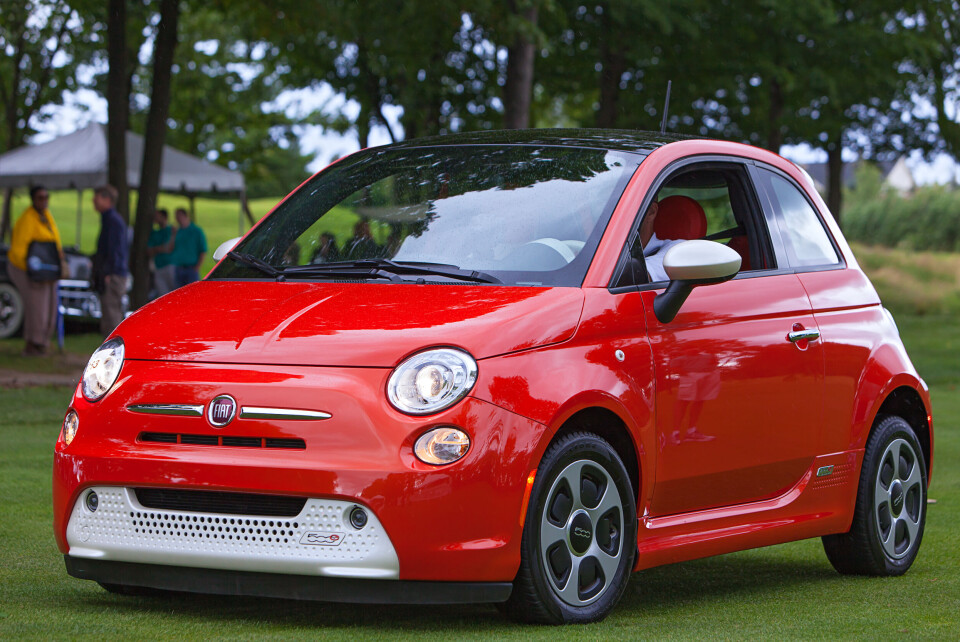-
‘No-licence’ cars: six rules to know in France
Double the number of these cars were registered in 2024 compared to 2019
-
France’s first 100% electric service station set to open in 2026
Station in Brittany will include six ultra-fast charging points
-
Tests underway on French motorway into recharging electric vehicle as you drive
‘World-first’ scheme sees quicker charging times than traditional methods
Cars by monthly subscription schemes growing in France
We look at the pros and cons, some examples of cost and the influence of Netflix and Spotify

Subscribing to a car may be the newest way to attract drivers, as more constructors and car companies have turned to new options in a market affected by a different relationship toward possession, increasing ecological concerns from consumers and tougher financial conditions.
Drivers cannot get loans
The new option adds to the three alternatives most consumers already know: buying the car itself, a long-term rental and the ‘location avec option d’achat’ (LOA), the rental with buying option.
The subscription option is attracting more and more clients looking for greater flexibility and less commitment.
But the phenomenon is also fed by a growing body of drivers unable to access expensive new cars because of more unstable employment contracts and tougher regulations from financial institutions when granting loans.
Gap in car market
“More drivers say they have a car rather than own a car,” said Marie Laloy, marketing and finance director at Aramisauto, a digital website selling a large array of repackaged cars through more than 30 agencies.
The company launched its subscription-scheme option, dubbed AramisFlex, over six months ago after it noticed an increasing amount of drivers getting loan refusals from financial institutions.
Greater flexibility
AramisFlex offers three formulas (three months, six months, twelve months) on more than 1,500 of its car fleet, starting from €199 for city cars to more expensive offers for SUVs.
Subscribing to a Peugeot 2008 SUV costs €329 a month, for example.
“The subscription provides greater flexibility and is designed for clients who do not want to get involved or have three to six-month visibility,” said Ms Laloy.
Wide range of customers
Ms Laloy said she is very satisfied with AramisFlex, having attracted a bevy of clients ranging from the clients unavailable to get a loan, to those wishing to try new electric-engine cars, expats and workers under temporary contract, on a trial period or working as an auto-entrepreneur.
Subscription as a ‘stop-gap’
Ms Laloy said more clients had turned to the subscription offer while awaiting delivery of a car they bought, because the delivery period is now up to an average of eight months – after the pandemic created a shortage on semiconductors.
She added that clients used AramisFlex for ten months on average.
Manufacturer starts Fiat subscription
Stellantis, a manufacturing company that owns Peugeot and Fiat Chrysler Automotives, followed the same path and opened its own subscription scheme on its electric Fiat 500 in April this year, becoming the first manufacturer to do so.
The manufacturer justified its decision in a press release by referring to the large number of consumers moving towards subscription to streaming platforms such as like Netflix or Spotify that offer unlimited access – and away from CDs, DVDs and film.
Fiat offers three subscriptions starting from €299 (with a battery to last for 190 kilometres) and jumps to €499, while various additional options can push the subscription price to €686 should a driver take every option.
1,500 kilometres of driving distance per month are included in every option and drivers can suspend their engagement at any time.
Electric is expensive option
Yves Carra, spokesperson for the Automobile Club Association, told The Connexion that subscription was a “good initiative,” although he regrets that the Fiat subscription only applies to electric cars and remained extremely expensive for most consumers.
He said the subscription would put off between 70 and 90% of consumers and that it was part of a larger initiative from politicians and car manufacturers to impose electric car transition.
Switch to electric disadvantages poorer drivers
“This forced switch to electric is widening the gap between the rich and the poor with considerable social consequences,” said Mr Carra.
He said the subscription was also the consequence of poorer buyers being priced out by increasing new car prices, noting that this currently averages €28,000.
He added that such a high subscription fee was not justified considering the modest autonomy of the electric battery and the very low number of electrical terminals installed throughout the country.
“When you pay €600 a month, you expect to drive around France without too much effort. Good luck doing so when driving an electric car.”
Related articles
€6,000 grant to help buy an electric car in France extended all year
Do I have to change French car’s licence plate if I move department?
Speed cameras, tunnel signs: Five updates for drivers in France
























